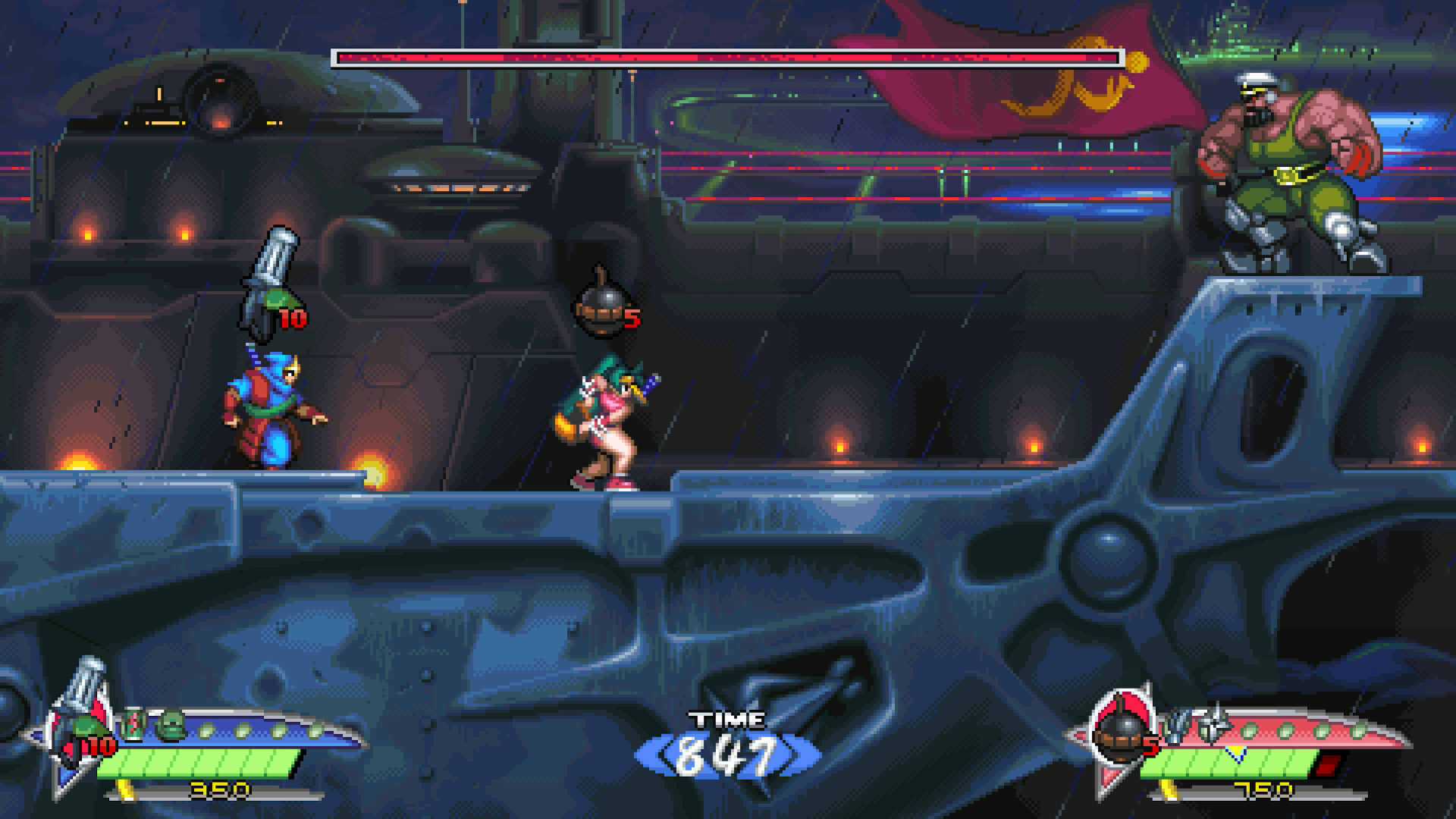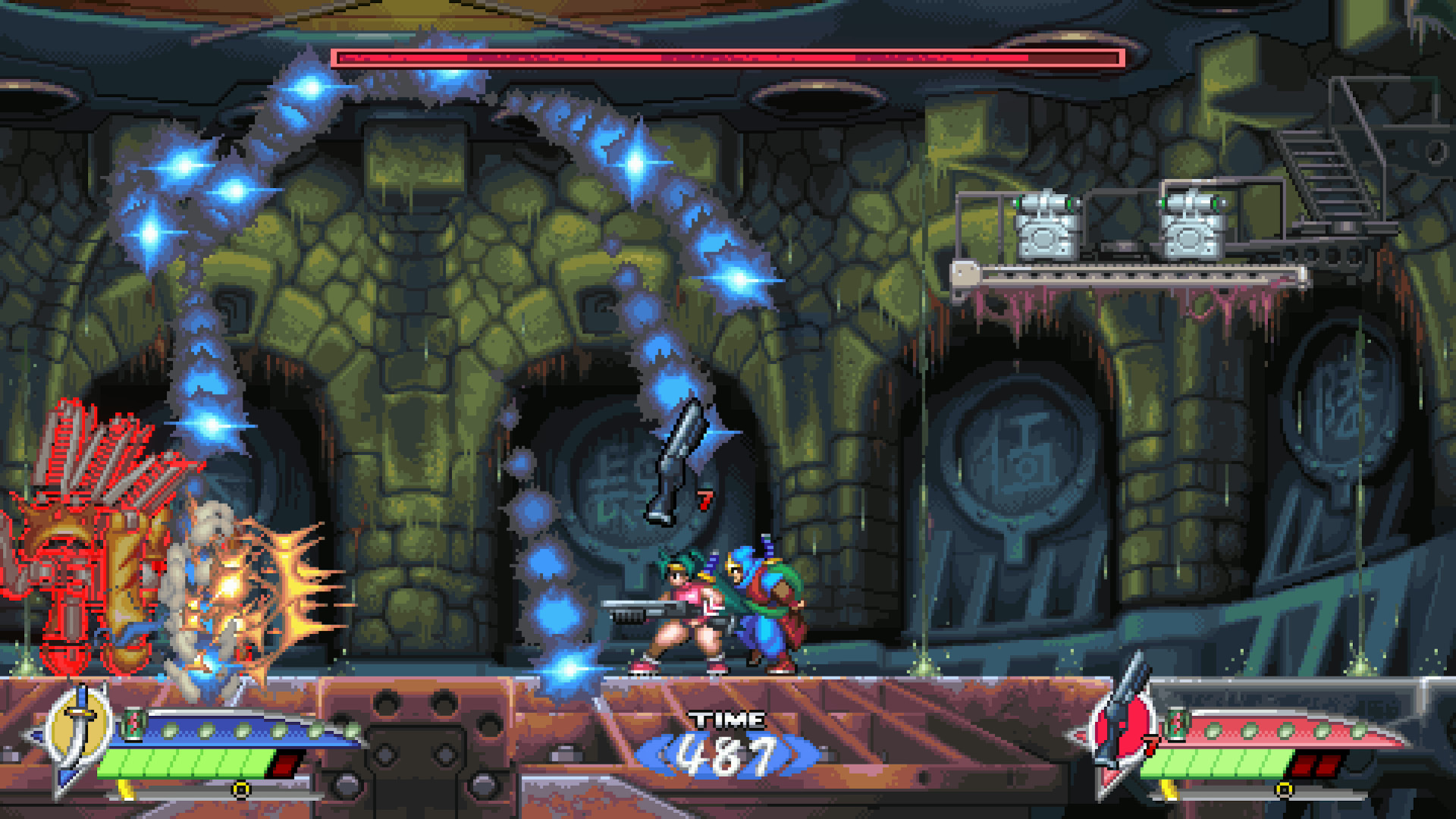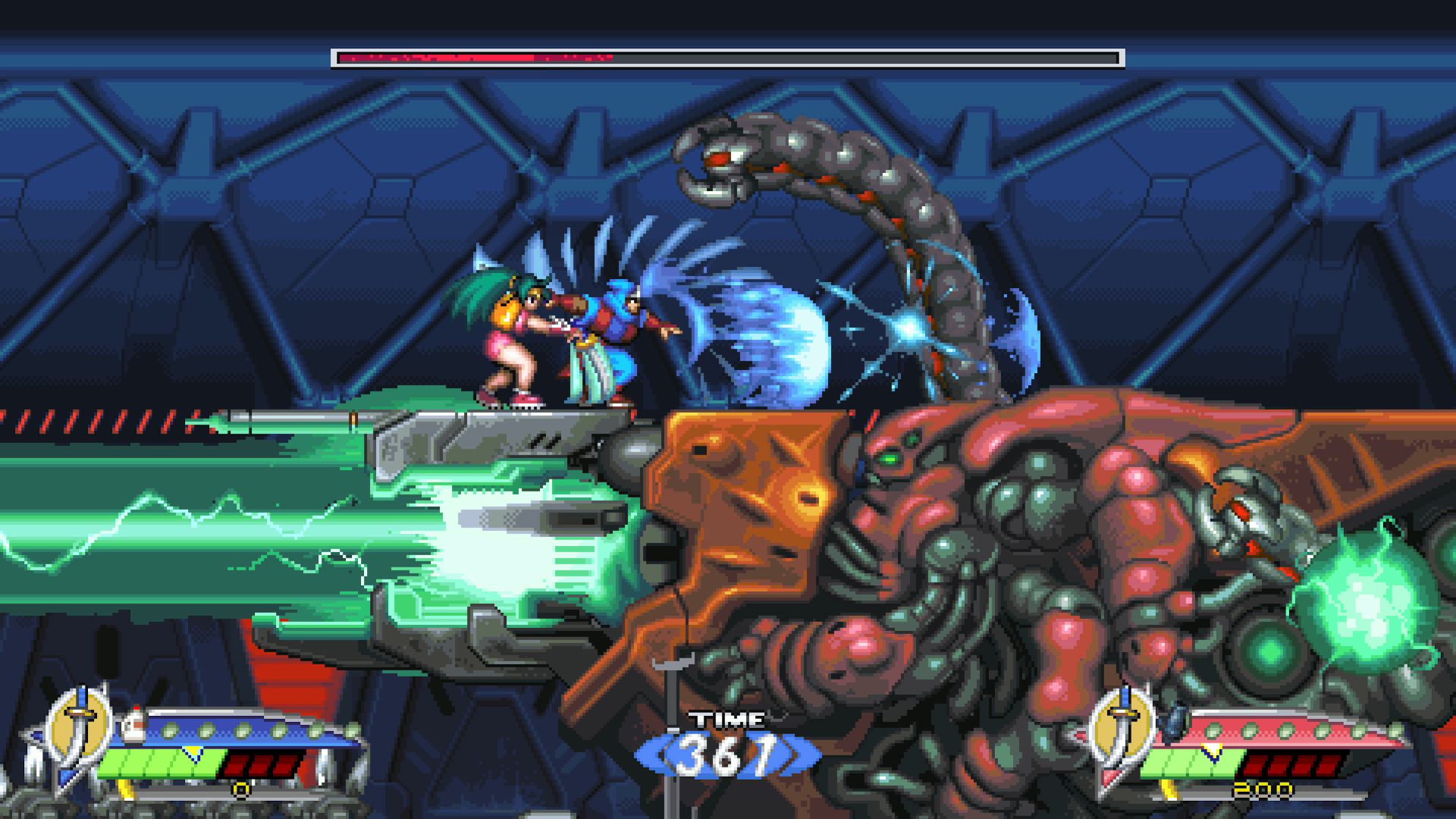
The item unlocking system further discourages item use. To actually unlock an item, gamers must beat the level while holding the item. This adds two wrinkles. First, you shouldn’t use an item if you haven’t already unlocked it, because using the item will keep you from unlocking it. Second, dying and restarting at a checkpoint will cause players to lose most of their items, so you basically have to play a level almost perfectly in order to unlock most of its treasures. If players kept items upon dying, it would be a fun system, but the current implementation punishes all but the most hardcore players since most of us won’t be able to carry the majority of the items past the finish line.
In fact, difficulty is where Reborn really stumbles. Tengo Project has long shown a proclivity for high challenge, as their other games like Pocky & Rocky Reshrined and Wild Guns Reloaded are tougher than average. Reborn is harder than the original game, though. My partner and I recently soared through the first level of the NES game without dying. Here, the first level took several tries. It’s beatable, but there’s an increased focus on memorization and perfection as opposed to just playing and having a good time. Enemies move in ways that require fast and specific responses, and they’re often positioned to deliberately trip up the player. The bosses, as big and cool as they are in this remake, are also quite tough and memorization-dependent.

2-player local co-op is relegated to a separate mode, so a second player can’t hop in at any time, unfortunately. The game does save the last level reached for both single-player and multiplayer, though, so players can juggle progress between the two modes. Bringing a second player along doesn’t make the game much easier since both players are quite vulnerable at all times. If one player dies, they can’t be revived until the remaining player reaches a new checkpoint or dies and returns to the previous checkpoint. Both players carry their own inventory, which can potentially make it easier to unlock items if both people can reach the end of the level with them. My partner found the difficulty irksome, regrettably, and didn’t have the stamina to grind through the whole game with me. That’s the trouble with a co-op game whose challenge is cranked up so high: finding a partner who's up to the task.

I really wanted to love Shadow of the Ninja – Reborn. The original game is a co-op classic, and Tengo Project brings wonderful artistic talent to this remake. Sadly, however, the developers chose to lean too far into the difficulty for my tastes. It’s not that hard games are bad or anything, but the challenge here turns what should be an exciting and fun experience into an arduous and repetitive one. Yes, players can restart from checkpoints as much as they want, but you have to enjoy the process of dying and retrying over and over again, and then coming back later with everything memorized and perfected. If that sounds like your jam, don’t miss Shadow of the Ninja – Reborn. I’d rather play Dead Cells or Rogue Legacy 2 if I’m going to play a tough platformer.
Shadow of the Ninja - Reborn costs $19.99 on Xbox, PlayStation, Switch, and Steam.
An Xbox download code was provided by the publisher for this review.
Verdict
Co-Op Score
Overall
The Co-Op Experience: Play together locally as the legendary ninjas Hayate and Kaede.
Co-Optimus game reviews focus on the cooperative experience of a game, our final score graphic represents this experience along with an average score for the game overall. For an explanation of our scores please check our Review Score Explanation Guide.